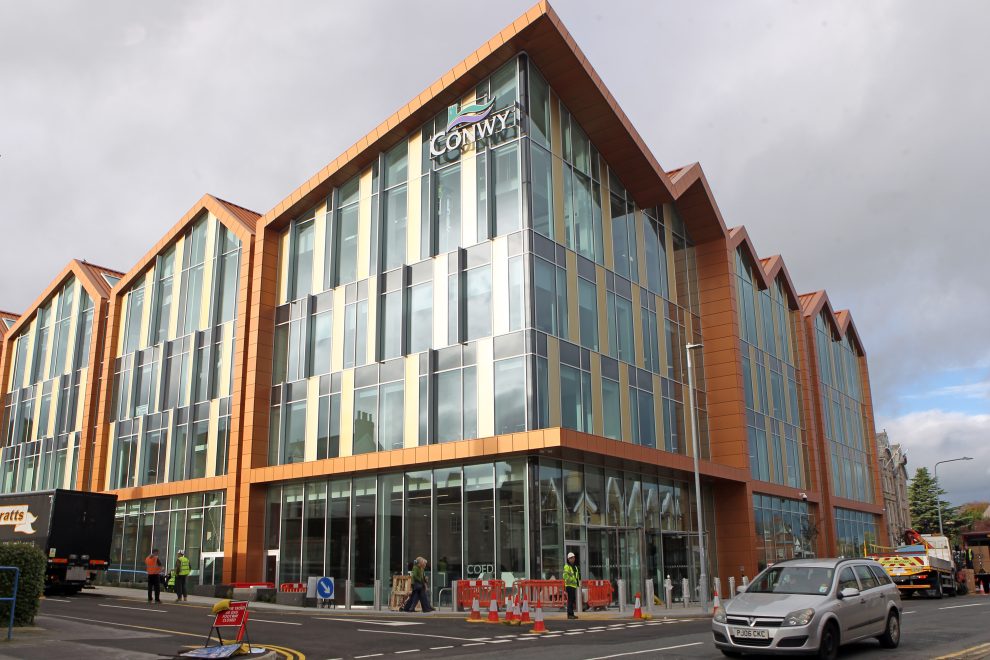SENIOR Conwy councillors and officers met with Welsh Government chiefs this week to plead for more money, spelling out the county’s underfunding.
Leader Cllr Charlie McCoubrey said he handed over detailed statistics to Welsh Government ministers, demonstrating how Conwy received £300 less per head of the population than neighbours Denbighshire.
The meeting was also attended by Conwy’s deputy leader, Cllr Emily Owen; chief executive, Rhun ap Gareth; director of care and education, Jenny Williams; as well as the director and head of finance, Amanda Hughes and Gareth Evans.
The Welsh Government ministers attending included cabinet secretary for finance, Mark Drakeford; cabinet secretary for housing and local government, Jane Bryant; and cabinet member for transport and North Wales, Ken Skates.
At a council meeting at Coed Pella this week, Cllr McCoubrey told councillors he explained to ministers how Conwy had been underfunded for over a decade, leading to huge council tax rises and cuts in services.
Whilst Conwy had a marginally improved local government settlement from Welsh Government this year of 3.6%, Conwy has traditionally received some of the lowest annual funding rises year on year.
Conwy received the joint lowest annual settlement rise in Wales in 2024 of 2%, compared to much higher rises in South Wales, with Cllr McCoubrey criticising the funding formula as outdated.
Council leaders argue Conwy’s high proportion of elderly residents means the care bill faced by the authority is disproportionate, among many other population demographic reasons.
“Members will often have heard me say that the role of local government is undervalued, and it is definitely underfunded,” he said.
“We are all aware of the situation in Conwy in the current year but also the really difficult decisions we’ve had to make over the last number of years.
“Amanda (Hughes, director of finance) and I prepared a lot of quite detailed statistics. We are aware that all local government counties across Wales are struggling, but the situation is far more acute in Conwy, given the inequities of the current funding formula, which as you know, provides £300 a head more for residents in Denbighshire and £160 per head more in Gwynedd.
“So I’ve long been an advocate for change, so it is really telling when you see that sort of statistical data over a 10-year period about the level of cuts, the level of reserves, and the level of council tax rises. It is a real close correlation between the level of funding that goes to each authority, which I suppose wouldn’t come as a massive surprise.
“Clearly if you are the bottom of the pile in terms of the level of funding you are getting as a council, that is much more severe, so the data is there.”
He added: “It was a good engaging meeting, and they were certainly prepared to listen. I think there will be a lot more to be done, but what I really want to press is the huge increases we’ve imposed on council-tax payers over the last three years to essentially protect those statutory services leaves us caught between a rock and a hard place.”
“We know it impacts more on people on lower incomes, but they are the people who most rely on our services, and that is an incredibly difficult balance to make.”
Conwy has increased council tax by around 30% in three years, but Cllr McCoubrey went on to explain the council funded around 12,000 hours a week of domiciliary care to keep people out of hospital.
The leader said Conwy would continue with evidence-based arguments to lobby to increase funding for the authority.
















